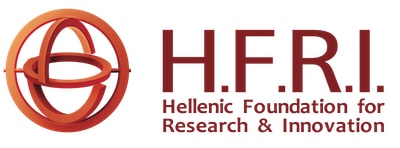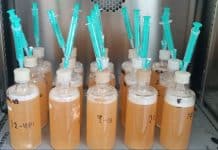 Both the International Organization of Vine and Wine (OIV) and the European Union (EU) consider circular economy as a task of paramount importance for a sustainable and competitive economy. In fact, in 2020 the European Commission adopted a new Circular Economy Action Plan as one of the main building blocks of the European Green Deal. The new Action Plan announced initiatives along the entire life cycle of products, targeting for example their design, promoting circular economy processes, fostering sustainable consumption, and aiming to ensure that the resources used are kept in the EU economy for as long as possible. Greece has a low “Circular material use rate” (5.4% for 2020) in concern to the medium EU rate (12.8%), taking the 20th position in 27 countries. Therefore, it is crucial for Greece to improve its position in this list, and the viti-enological sector could help in this direction.
Both the International Organization of Vine and Wine (OIV) and the European Union (EU) consider circular economy as a task of paramount importance for a sustainable and competitive economy. In fact, in 2020 the European Commission adopted a new Circular Economy Action Plan as one of the main building blocks of the European Green Deal. The new Action Plan announced initiatives along the entire life cycle of products, targeting for example their design, promoting circular economy processes, fostering sustainable consumption, and aiming to ensure that the resources used are kept in the EU economy for as long as possible. Greece has a low “Circular material use rate” (5.4% for 2020) in concern to the medium EU rate (12.8%), taking the 20th position in 27 countries. Therefore, it is crucial for Greece to improve its position in this list, and the viti-enological sector could help in this direction.
 OIV recognizes that there is an increasing interest in the valorization of the secondary products generated during the wine making process. According to the 2008 OIV’s Guidelines for sustainable vitiviniculture, emphasis should be placed on initiatives for waste reduction at the source and on recovering useful and active materials from waste products, recycling waste components as part of selective management by appropriate supply channels and minimize the impact of the winemaking production on the environment and the local community.
OIV recognizes that there is an increasing interest in the valorization of the secondary products generated during the wine making process. According to the 2008 OIV’s Guidelines for sustainable vitiviniculture, emphasis should be placed on initiatives for waste reduction at the source and on recovering useful and active materials from waste products, recycling waste components as part of selective management by appropriate supply channels and minimize the impact of the winemaking production on the environment and the local community.
 The aim of this project is to increase the environmental and socioeconomic sustainability of the winemaking industry, focusing on the circular economy possibilities of the wine lees by-product.
The aim of this project is to increase the environmental and socioeconomic sustainability of the winemaking industry, focusing on the circular economy possibilities of the wine lees by-product.
Project Τitle: Study of the Wine Lees By-Product Metabolomic and Peptidic Fingerprint Produced by Various Yeast Strains and Their Evaluation as Internal Circular Economy Agents Against Grapevine Pathogens – reLees
Project Duration: 29/11/2023 – 28/11/2025
Project URL: https://relees.uniwa.gr/
Project Framework & Funding: The project is implemented in the framework of H.F.R.I call “Basic research Financing (Horizontal support of all Sciences)” under the National Recovery and Resilience Plan “Greece 2.0” funded by the European Union – NextGenerationEU. Total Budget: 168.752,00 €
Scientific coordinator (UNIWA): Panagiotis Arapitsas
Consortium – Partners: University of West Attica and Fondazione Edmund Mach












